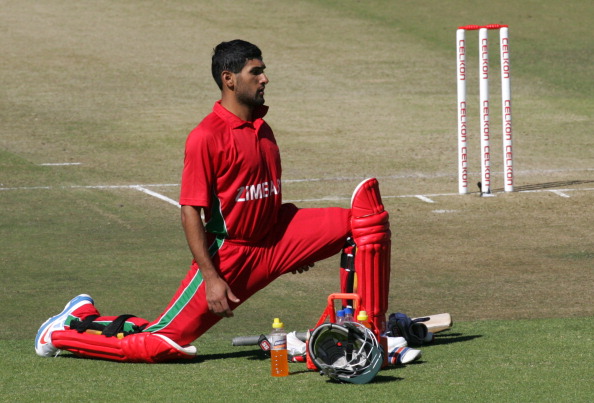THE first thing you notice is the despair, and how oddly familiar it looks. Sikandar Raza has just played a loose shot to a Josh Davey short ball, nicking off to the wicketkeeper.
Just half-an-hour later, he will be named Player of the Match; he’s registered bowling figures of 4-0-20-1, and his 23-ball 40 has put Zimbabwe on the brink of Super 12 qualification.
But his look, and that persistent anguished visage, doesn’t just represent disappointment, it reveals trauma. He got out at a comparable stage of a game in a vital World Cup qualifier, against the UAE in Harare, mistiming a shot he knew he should have put away.
On that occasion, Zimbabwe ended up falling short by three runs and missing out on the 2019 World Cup. It is a memory that left psychological scars seared deep in the minds of all Zimbabwean players involved that day, and in Hobart, Raza’s reaction showed how quickly they can again be brought to the surface. “The demons came back straightaway as soon as I got out,” Raza tells ESPNcricinfo.
“I had Craig on the other end. In that game, I had Sean on the other end. The first thing that went through my head was ‘not now, not again’. The second thing I was annoyed about was it wasn’t a ball I should have gotten out to.
I should have executed slightly better.” We’re sat in his hotel lobby in Hobart. It’s barely 36 hours since Raza was a picture of despair, but it’s a bright and warm afternoon, and those emotions seem to have melted away into the deep past now that a balm has finally been applied to an open wound from four years ago.
The chief selector, several of his teammates, and, of course, Dave Houghton walk past on a few occasions, their faces breaking out into contented grins as they walk past him. Houghton drops by at one point and asks about a neck scan he’s just returned from after an impact injury in the game against Scotland.
They have a convivial chat, share a joke and a laugh, and Raza sits back down. It doesn’t come off as a tense, formal interaction between an austere 65-year-old former policeman from Bulawayo and a man born to a businessman in Sialkot three decades later.
They’re chatting less like a coach and a pupil, and more as friends. The change in Zimbabwe’s outlook and form since Houghton’s arrival is quite something to behold. In a game where statistical edges through exhaustive, Moneyball-style analytical research has become something of a trade secret, neither Houghton nor any of his players pretend anything as complicated explains Zimbabwe’s uptick in fortune.
“That obvious change [of coach] is the answer [to explain our success]. The fact that we’ve got Dave Houghton now makes such a huge difference,” Raza says. “We had some top-quality cricketers that are not here and you cannot take that away from them.
But I feel that in this World Cup we are a lot more united than we ever have in the previous World Cups. That is our strength.” “All I’ve done up until now is basically said to them that I want them to play fearless cricket,” Houghton had told ESPNcricinfo earlier this year.
“There will be no recriminations if they make mistakes. Making mistakes is a good way of learning. But I want them to go out and play with their skills because we’ll never know how good we are until we actually put our skills on the table. I think that has been the turning point.”
In the few months since, people have begun to find out how good they are, with wins against Bangladesh, Australia and, of course, Pakistan marking a dramatic turnaround since Houghton’s arrival. With the team’s success, the players have begun to pull together. “When it comes to the national team, it is never about me,” Raza says. “We have bought into a team plan and my job is to win the game for the country.
“I learned something through T20 franchise cricket and I’m a big believer in it. If your team’s needs come before your personal needs, you will find your needs being looked after anyway. “The problem will start when a culture becomes slightly selfish and people are looking after their own needs, rather than thinking about what the country needs, which is what needs to be done whether you have bat or ball in hand.
“If you are constantly thinking about what my team needs of me and you’re constantly trying to achieve that, you’ll be fine.” While keeping things simple has paid dividends for Raza, and Zimbabwe, he doesn’t pretend that diversity of viewpoints surrounding the nous of an all-out attack doesn’t exist altogether.
In Zimbabwe’s first-round game against West Indies, Zimbabwe got their chase off to a flying start, but with the rate dropping down below seven, they continued with a high-risk approach that belied the modest nature of the target. When Raza fell, playing arguably the flashiest shot of the lot, there were no specialist batters to follow, and Zimbabwe fell to 64 for 5, and subsequently to a big defeat. — ESPNcricinfo








